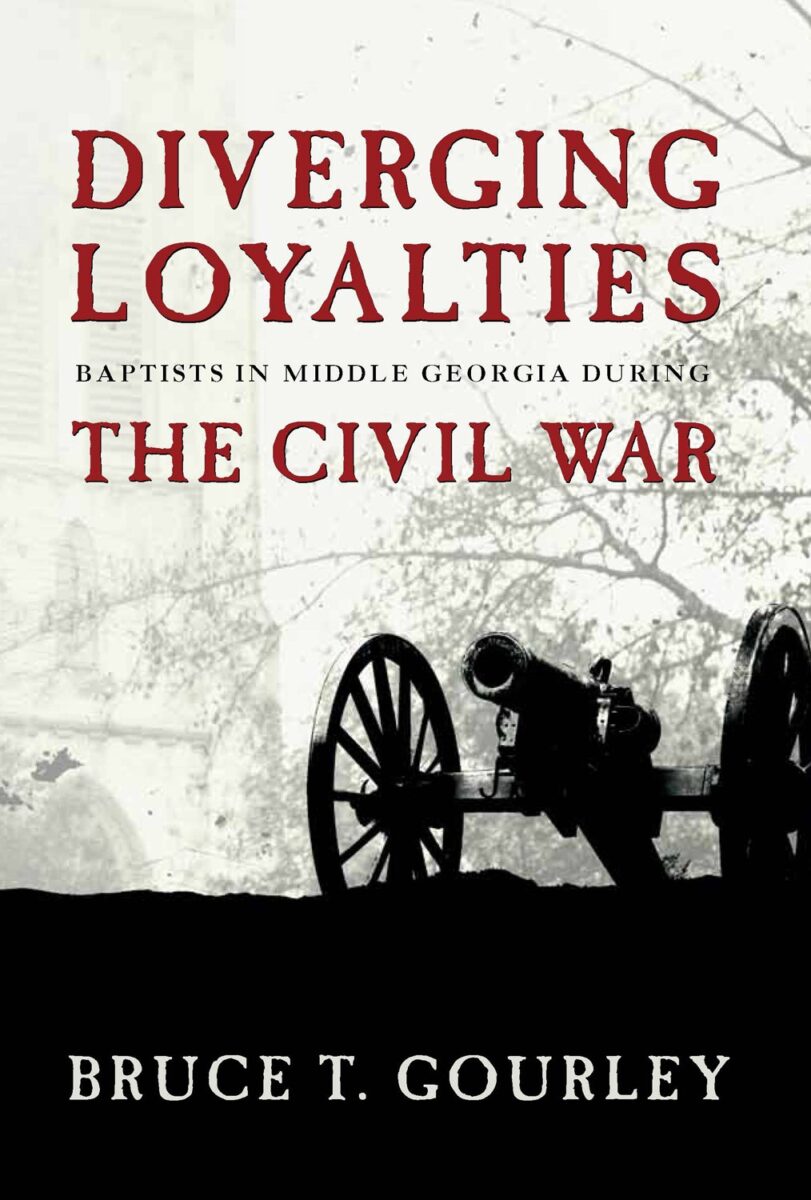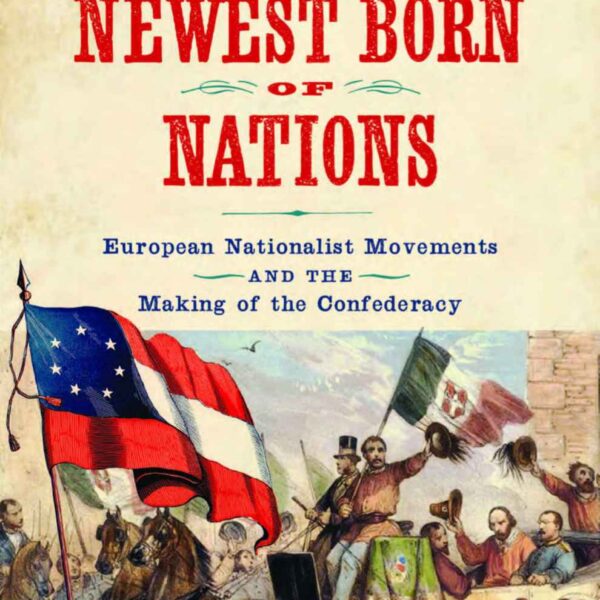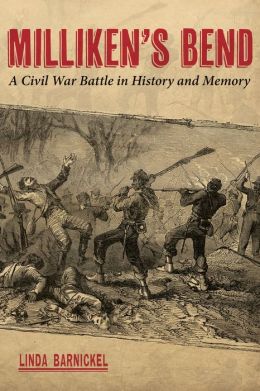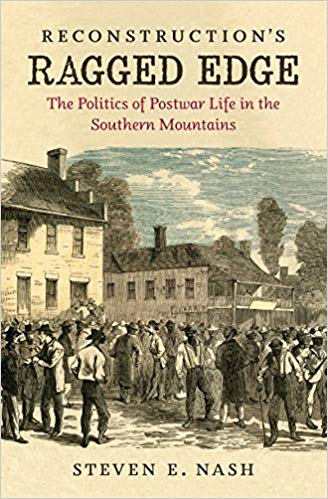Bruce T. Gourley’s Diverging Loyalties: Baptists in Middle Georgia During the Civil War is an engrossing, enlightening exploration of our nation’s greatest trauma, as seen through the eyes of a unique source: that is, the Baptist community of one southern state. The relationship between religion and the Civil War is not a new subject, yet in his work Gourley presents new evidence and provides a new argument for the impact of religion on the war, the institution of slavery, and for southern identity. The author’s focus on Middle Georgia provides for an even more-localized account of the role religion played in establishing social and cultural boundaries during the Civil War—and how regional alliances did not always parallel the broader spaces of state and country.
The story of Middle Georgia during the Civil War, Gourley argues, was deeply influenced by the South’s spiritual identity and its relationship with God, even in the years preceding the war. Describing the antebellum atmosphere of the region, Gourley writes, “while some Baptists in 1862 resolutely affirmed God’s providential hand upon the South with no qualifiers, others repositioned God’s favoritism as contingent upon Southern morals,” adding that, “[w]hile the responsibility for victory remained in God’s hands, the responsibility of earning God’s favor through proper behavior fell upon the Confederacy” (29). Gourley’s discussion of the Baptist presence in Georgia is a complex one, and he skillfully dissects the multiple layers of the church, from the various factions and organizations to the local parishes and individual church leaders, as well as an examination of assorted church rules, regulations, and disciplinary actions for transgressors.
Any exploration of the South during the Civil War must discuss the role of slavery in the region, and Gourley’s analysis of slavery in Georgia is a strong one, framed of course by the religious implications of the institution. “The economic and social foundations of the Confederacy and slavery could not be long neglected when speaking of providence,” Gourley writes. “For some post-Gettysburg and Vicksburg Baptists unwilling to advocate human actions or human will at the risk of creating an impotent God, slavery provided an avenue for affirmation of the Almighty in the face of a national crisis” (37). The religious response to slavery of Middle Georgians, Gourley contends, was a varied one. As Gourley mentions in the opening pages, Baptist church services were segregated affairs and the Baptist community, by-and-large, supported the institution of slavery. Prior to the start of the war, “Baptist leaders in the South now called upon congregations to support a new nation established by the will of God for the preservation of a Christian faith dependent on the civic institution of African slavery” (57). Yet Gourley’s research depicts blacks being active within the Baptist church in Middle Georgia, and white Baptists as being responsive to black members. His discussions of slavery, black participation in religious meetings, and the relationship between blacks and whites further emphasizes the array of participants—and their agency—within the Baptist community of Middle Georgia.
The above discussions are only a slight sampling of the many accounts recorded in Diverging Loyalties, and the intersecting content is one of the work’s more admirable qualities. Even more impressive is the copious research Gourley has done in order to support his theses. He presents a wide variety of scholarly source material, from Samuel Boykin’s two-volume History of the Baptist Denomination of Georgia (1881) to more contemporary secondary sources by Drew Gilpin Faust, James McPherson, and Gregory Wills, to name just a few. The wealth of his research, however, comes from the extensive primary source material he has uncovered, ranging from historical Georgia church records, meeting minutes of various Baptists organizations, and several newspapers. The most relevant of these is perhaps the Macon, Georgia Christian Index, which Gourley cites extensively. Indeed, his successful use of primary sources allows Gourley to depict Middle Georgia during the Civil War as a very vivid place, and its citizens as a collective body, albeit with diverse opinions and identities.
One interesting inclusion that Gourley might have expounded upon further is the relationship between southern Baptists and their northern counterparts. In the few mentions of the northern church Gourley provides, there appears to have been a significant link between the two regional church bodies. The story of the North is not the story Gourley wishes to tell, and Diverging Loyalties does not suffer because of the exclusion. Nevertheless, the conflicts between the North and South Gourley does mention briefly (i.e., abolition and anti-slavery; postwar control by the North) are intriguing inquiries.
At its core, Gourley’s work is not only revealing, but it is also wholly readable and entertaining. Diverging Loyalties will certainly satisfy enthusiasts of the Civil War and American religion, yet those with only casual interest will also find themselves engaged with the content. Not only does Gourley explore a localized view of the daily tensions of the War, but he also successfully presents the social transformations that occurred during it. Historians have long contended that Civil War experience was a distinct one for its many participants, and Gourley’s narrative truly echoes this assertion.
Christopher Tucker is a doctoral student in history at Clark University.





